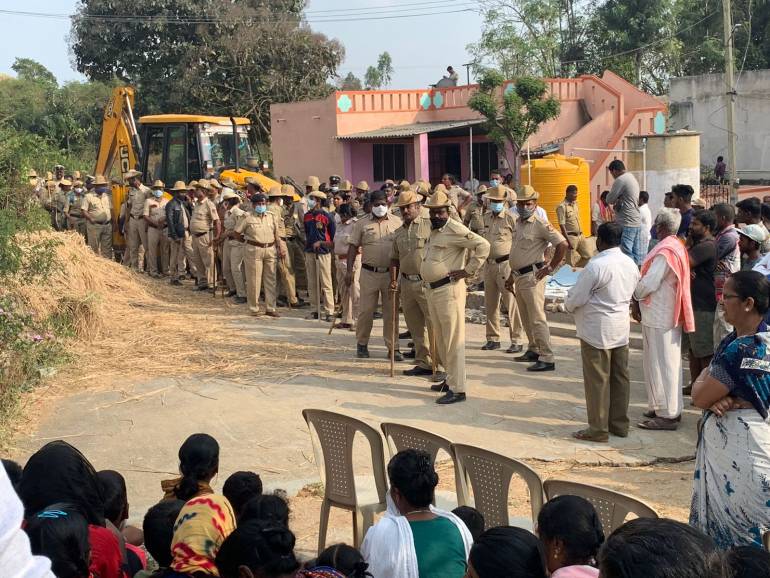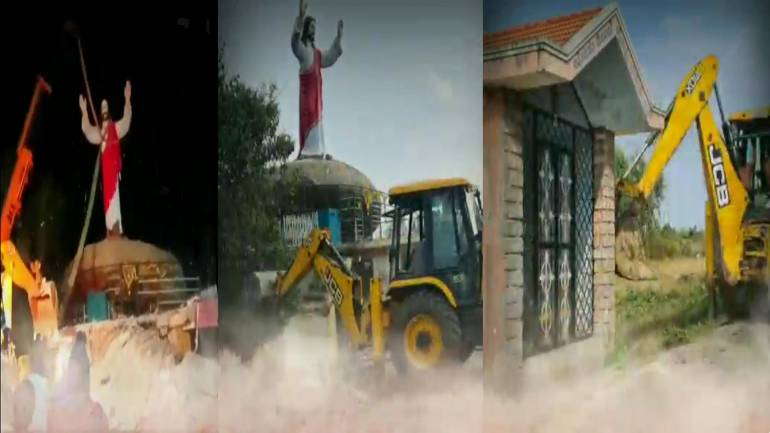Indian local government demolish 20- foot Jesus Statue in Karnataka

Authorities of the district of Kolar in Karnataka gave orders to demolish a statue of Jesus erected 18 years ago.
The demolition order was carried out in the presence of civil authorities, police officers, and the locals on February 15.
According to the demolition order, the statue had been built on State property set aside as pasture for animals.
“We have demolished the 20-foot statue based on the High Court order, which confirmed that it was built on government land,” explained the official.
However, Christian leaders in the region say that “The statue was illegally demolished while the case is still pending in court and the Catholic community had opposed demolition.”
Father Theres Baby, a priest and a lawyer said, “The demolition letter has never been notified or shown to us, and February 16 was set as a new hearing on this case.”
Rayappa, the local parishioner, told Agenzia Fides, “Since 2004, we have been praying in front of this statue. More than 400 policemen came to demolish the statue on February 15 night with bulldozers, and they did not listen to us and in the end, destroyed it completely."
Radical Hindu organizations sought to create tension in the region and appealed to the High Court demanding the demolishment of the statue, as expressed by the residents.
"For several decades, we have had written consent from the authority to use the approximately 300-acre land where the statue stood while continuing to carry out pastoral and social activities. But two years ago, a member of a Hindu group filed an appeal to the High Court, challenging our use of that land," said a priest at the nearby Church of St. Francis Xavier.
The church of St. Xavier in Gokunte is one of the oldest Catholic presences in the Kolar district where more than 100 families live.
In 1977, this parish was entrusted to the Missionaries of Saint Francis de Sales.
In the parish, there is also a home for poor children, a pilgrim's house, and many other social promotion activities, such as vocational training centers for women, a tailoring school, and an English school.

Radio Veritas Asia (RVA), a media platform of the Catholic Church, aims to share Christ. RVA started in 1969 as a continental Catholic radio station to serve Asian countries in their respective local language, thus earning the tag “the Voice of Asian Christianity.” Responding to the emerging context, RVA embraced media platforms to connect with the global Asian audience via its 21 language websites and various social media platforms.














